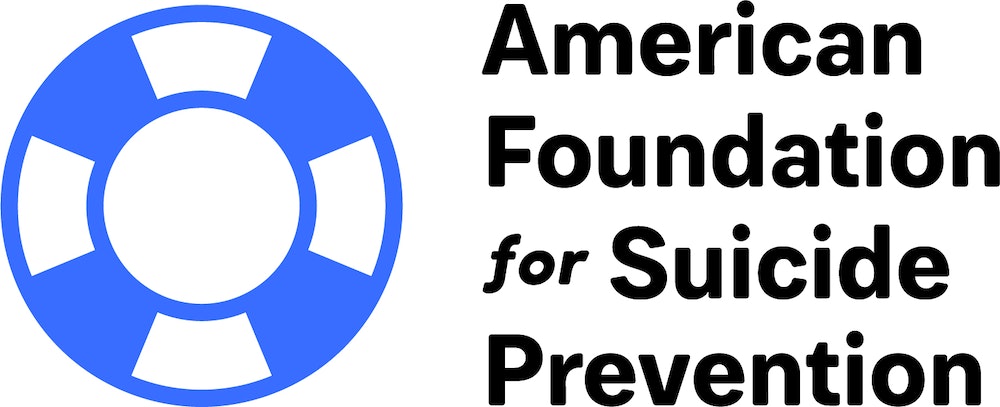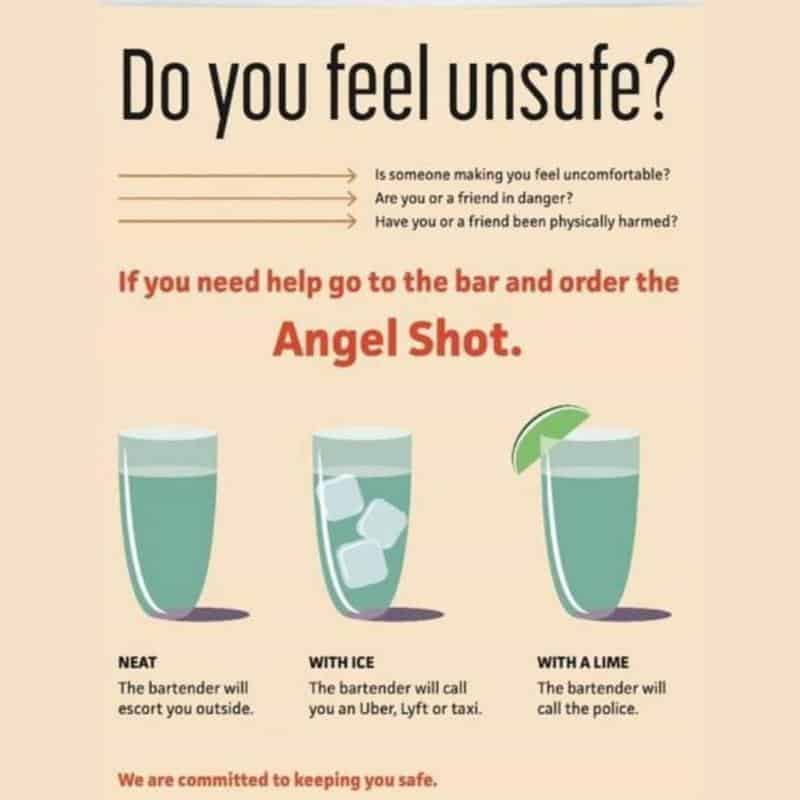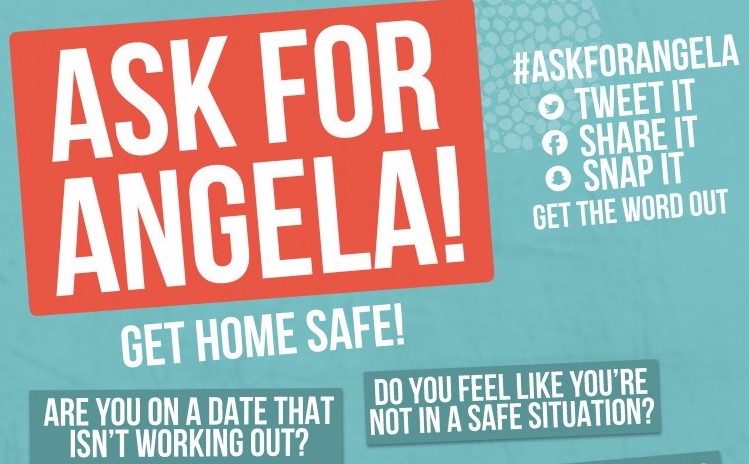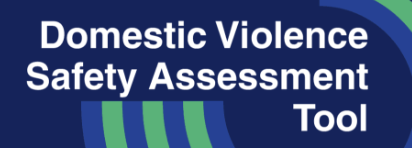
Online Dating and Dating App Safety Tips by RAINN
More than 40 million Americans use online dating services or dating apps. As is the case when meeting someone new, whether online or offline, it’s wise to keep a few safety precautions in mind. Dating apps don’t conduct criminal background checks on users, so it’s up to each user to determine if they are comfortable meeting up with someone. However, it is important to remember that if you do experience sexual assault or violence while dating online or using an app, it is not your fault. (CLICK HERE for full article)

Safety Tips for Travelling
Whether you travel often or you’re getting ready for a once-in-a-lifetime vacation, it’s important to think about safety as part of your travel preparations. The following tips can help travelers plan for a safe and comfortable trip and may reduce the risk of many different types of crimes, including sexual violence. (CLICK HERE for full article)

What Consent Looks Like
While the legal definitions of consent may vary by location and circumstance, the general concept is always the same: Consent is an ongoing process of discussing boundaries and what you’re comfortable with. Let’s get specific about how consent plays out in real life. (CLICK HERE for full article)

The Abortion Pill
The abortion pill works up to 11 weeks of pregnancy. You can usually have your abortion in the privacy of your own home. (CLICK HERE for full article)

Where Can I Get an In-Clinic Abortion?
You can get an in-clinic abortion at many Planned Parenthood health centers. Our caring doctors and nurses are experts at providing safe abortions and providing support throughout the process. You can also get an abortion from some private doctors or gynecologists, family planning clinics, and abortion clinics. Contact your local Planned Parenthood for more information about where to get an abortion in your area. (CLICK HERE for full article)

Is Abortion Still Accessible in My State Now That Roe v. Wade Was Overturned?
Abortion was legal throughout the U.S. for 49 years thanks to Roe v. Wade — but now that Roe was overturned, abortion access and laws vary by state. (CLICK HERE for full article)
Manipulation is Abuse
How to identify manipulative tactics, behaviors, and people, & how to deal with them; crowdsourced by survivors. This guide will help you identify manipulative situations and find support to get yourself out of a controlling relationship. (CLICK HERE for full article).
The Good Friend Guide
A short guide that will give you practical and simple advice on how to better support a loved one in an abusive relationship. (CLICK HERE for full article).
Creating Your Own Timeline for Self Reporting
A timeline feature to support survivors through their self-reporting journey. You may have difficulty remembering what has happened. This is completely natural. When we experience something traumatic, it can be hard to connect the details of what happened and to feel comfortable putting it down. (CLICK HERE for full article).
Domestic Violence Safety Assessment Tool (DVSAT)
Domestic Violence Safety Assessment Tool (DVSAT) is used by non-government service providers and government agencies other than NSW Police Force. The DVSAT has been designed for use in intimate partner violence situations. CLICK HERE for full article.

Stalking
When you learn more about stalking behaviors, you’re more likely to notice them before they escalate, and you can take steps to protect yourself. If you discover that you are being currently being stalked—either in-person, online, or via technology—it can be unsettling and even dangerous. Consider taking steps to protect yourself or involve an authority figure who can help you. (CLICK HERE for full article)
Anti-Stalking Features of iOS 17.5
Apple created ‘Unwanted Location Tracking’ features with the iOS 17.5 software update. Not only will your iPhone detect when an Airtag or Airpod that is not connected to your phone is following you; with iOS 17.5, any tracking device (Apple or non-Apple product) can be detected and will notify you when an unknown tracking device is following you without being connected to your phone. (CLICK HERE for full article)
Apple and Android Devices Now Have 'Unwanted Location Tracking' Alerts
With iOS 17.5 and Android 6.0+ software updates, Apple and Android users will now be able to receive ‘Unwanted Location Tracking’ alerts. If any GPS tracking device (even Airtags or Airpods) is following your device without being connected to it, you will be alerted on your device. (CLICK HERE for full article)

How to Help a Friend
We often get phone calls from people whose friends and/or family members are being abused by their partners. Here are some answers to common questions that we get. (CLICK HERE for full article)

What Is Partner Abuse?
Partner abuse is also called domestic violence, battering, intimate partner violence, and/or dating abuse. Partner abuse happens in all communities. It crosses all social, ethnic, racial, age, and economic lines. Size, strength, age, politics, gender presentation and expression, or personality does not determine whether someone can be abused or an abuser. Abuse is NOT more or less common in LGBQ/T relationships. (CLICK HERE for full article)

Safety Planning
Safety planning is a way to assess danger/risk: this can be risk of physical, emotional, sexual, financial and/or cultural/identity harm. It is also a way to come up with strategies that can help you stay safer. (CLICK HERE for full article)

Restraining Orders
CLICK HERE for the full article answering frequently asked questions regarding restraining orders.

How To Recognize Gaslighting and Respond To It
Gaslighting made the leap from psychological lingo to trendy buzzword with the 2016 presidential campaign. More recently, it has morphed into what Ackerman calls a “catchall phrase” — often used incorrectly by people referring to simple disagreements over issues or interactions that don’t meet gaslighting’s historical definition. Some mental health experts are concerned that overusing the term could obscure the abusive nature of gaslighting and reduce its power to help victims recognize ongoing manipulation. (CLICK HERE for full article)

More Than 1 in 4 Women Have Experienced Domestic Violence in Their Lifetimes, Global Study Finds
More than 1 in 4 women in the world have experienced domestic violence in their lifetimes, according to a study published Wednesday. The study, in the Lancet medical journal, used statistics from the World Health Organization’s global database on the prevalence of violence against women from before the coronavirus pandemic, 2000 to 2018. (CLICK HERE for full article)
Survivor Technology and Privacy Toolkit
Safety Net Project, created by the National Network to End Domestic Violence (NNEDV), has a webpage containing a Technology Safety and Privacy Toolkit. This toolkit contains resources, information, privacy strategies, and safety tips for survivors of intimate partner violence and/or stalking. (CLICK HERE for full toolkit)

11 Tips for Fathers and Father Figures of LGBQ, Trans or Gender Non-Conforming Children
Parenthood requires constant learning and growth – here are some tips for letting your children know the security and love he/she/they have always received is still intact and always will be. (CLICK HERE for full article)
What Is an Incel? A Term Used by the Toronto Van Attack Suspect, Explained
Incels are misogynists who are deeply suspicious and disparaging of women, whom they blame for denying them their right to sexual intercourse. Theirs is a relatively new take on a “male supremacist” worldview, according to the Southern Poverty Law Center. The center, which closely tracks hate speech, reports that incels grew out of the pickup artist movement, which takes a manipulative approach to seduction, but is rejected by incels who find it too humanizing of women. At their most extreme, incels have advocated rape and other forms of violence against women. (CLICK HERE for full article).
Feeling Dismissed? How to Spot ‘Medical Gaslighting’ and What to Do About It.
The experience of having one’s concerns dismissed by a medical provider, often referred to as medical gaslighting, can happen to anyone. A recent New York Times article on the topic received more than 2,800 comments: Some recounted misdiagnoses that nearly cost them their lives or that delayed treatment, leading to unnecessary suffering. Patients with long Covid wrote about how they felt ignored by the doctors they turned to for help. (CLICK HERE for full article).
Look Out For Manipulation Tactics and Emotional Abuse
Although some forms of abuse are easier to detect early on, in a lot of cases, acts of emotional abuse have a tendency to go unnoticed, even by those who fall victim to it. Unfortunately, when it comes to those closest to us, we forget to pay attention to toxic patterns as we lack objective vantage points. This may especially be the case if the perpetrator adds positive reinforcement to the mix in order to keep those affected by their unhealthy behaviour catching on. Even though emotional abuse knows no gendered boundaries, women are disproportionately vulnerable to it. (CLICK HERE for full article).
Student Debt Keeps Domestic Violence Survivors Tied to Their Abusers
Financial abuse—particularly coercing and controlling victims who may already have significant debt—is an extremely common form of domestic abuse. According to domestic violence experts, economic sabotage (for example, tanking a partner’s credit score) ranks among the top tactics used in abusive relationships. Sometimes, abusers take out massive loans in their victims’ name in an effort to entrap them in the relationship; other times, abusers attach their own debt to their victims, also as a means to entrap them. An early 2000s program meant to help with student debt made this even easier. (CLICK HERE for full article).
Abuse: How African Women Suffer in Silence
Almost one in two African women has experienced violence at some point during her life. But perpetrators silence their victims by saying the woman is to blame — or that she provoked the abuse. How can this change? (CLICK HERE for full article).
8 Ways to Financially Support a Friend or Family Member Experiencing Abuse
Financial abuse is more common than you think. In one survey of domestic violence survivors, 99% said they’d been financially abused, in addition to experiencing physical and psychological harm. “It’s a way to restrict the survivor of abuse from leaving,” explains financial therapist Megan McCoy. Financial abuse happens when one partner in an intimate relationship controls the other partner’s access to money. Financial abuse also happens in families, where one family member withholds access to money from one or more family members. (CLICK HERE for full article).
Dependent Personality Disorder
Dependent personality disorder (DPD) is a type of anxious personality disorder. People with DPD often feel helpless, submissive or incapable of taking care of themselves. They may have trouble making simple decisions. But, with help, someone with a dependent personality can learn self-confidence and self-reliance. (CLICK HERE for full article).
Trauma Bonding: What is it and How to Cope
Leaving an abusive relationship usually isn’t as simple as walking out the door. Along with concerns about finding a place to live, supporting yourself, or being prevented from seeing your children or loved ones, you might feel tied to your partner, unable to break away. This emotional attachment, known as a trauma bond, develops out of a repeated cycle of abuse, devaluation, and positive reinforcement. The trauma of abuse might create powerful feelings you struggle to make sense of, especially when abuse alternates with kindness and intimacy. (CLICK HERE for full article).
You Aren’t a Narcissist, But Could You Be an Echoist?
Echoism is the opposite of narcissism. Echoists are often people who feel the need to take care of others at their own expense. They shy away from any form of praise or recognition, instead wishing to remain anonymous and in the shadows. So, where a narcissist is selfish and self-centered, an echoist is generally someone who feels uncomfortable in the spotlight or receiving praise or recognition of any kind. They have an almost phobic like fear of seeming narcissistic in any way. (CLICK HERE for full article).

Strength Over Silence: Stories Of Courage, Culture And Community
In this ongoing docuseries, National Alliance on Mental Illness (NAMI) highlights perspectives on mental health across backgrounds and communities. Through candid and courageous stories of lived experience, these mental health champions share their resilience and recovery, emphasizing the importance of culture and identity in the mental health movement. (Click HERE for full article).
Trauma
In the context of the American Psychiatry Association diagnostic manual, trauma is defined as exposure to actual or threatened death, serious injury, or sexual violence in one (or more) of the following ways:
- Directly experiencing the traumatic event(s),
- Witnessing, in person, the event(s) as it occurred to others,
- Learning that the traumatic event(s) occurred to a close family member or a close friend or
- Experiencing repeated or extreme exposure to aversive details of the traumatic event(s).

The American Foundation for Suicide Prevention (AFSP): Suicide Statistics
Learn the latest published statistics on suicide from the Centers for Disease Control and Prevention (CDC) Data & Statistics Fatal Injury Report for 2020, retrieved February 17, 2022. (Click HERE for full article).

Risk Factors, Protective Factors, and Warning Signs of Suicide
While there is no single cause for suicide, there are risk factors and warning signs which may increase the likelihood of an attempt. Learning them can save lives. (Click HERE for full article).

Suicide Prevention Interventions and Treatments
There are many helpful approaches for individuals and their loved ones, when someone is in distress or at risk for suicidal behavior. Interventions and treatments have been developed in recent years for individuals who are experiencing suicidal thoughts or who have made a suicide attempt. (Click HERE for full article).

What is Child Marriage?
Child marriage includes any marriage or informal union where one person is under the age of 18. Most of these unions impact girls and are not rooted in love or choice. (Click HERE for full article).

Angel Shots: Protecting Customers from Sexual Assault
An angel shot is a drink order made by a customer to inform a bartender that they are in an unsafe situation and need assistance. A customer asking for an angel shot indicates that they need help but do not feel comfortable asking for it in their present situation. These orders are usually requested in the presence of someone else who puts the customer in a dangerous position or makes the customer feel uncomfortable. By understanding the meaning of an angel shot and taking the appropriate actions, you can help customers who are at risk of the following:
- Trafficking
- Sexual assault
- Abduction
- Physical assault
- Any other possible threats

‘Ask for Angela’
The safety initiative ‘Ask for Angela’ is being rolled out to bars, clubs and other licensed businesses across London. People who feel unsafe, vulnerable or threatened can discreetly seek help by approaching venue staff and asking them for ‘Angela’. This code-phrase will indicate to staff that they require help with their situation and a trained member of staff will then look to support and assist them. This might be through reuniting them with a friend, seeing them to a taxi, or by calling venue security and/or the police. (Click HERE for full article).











